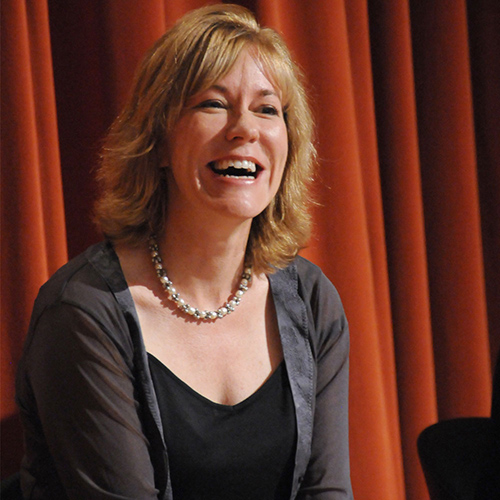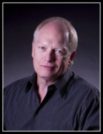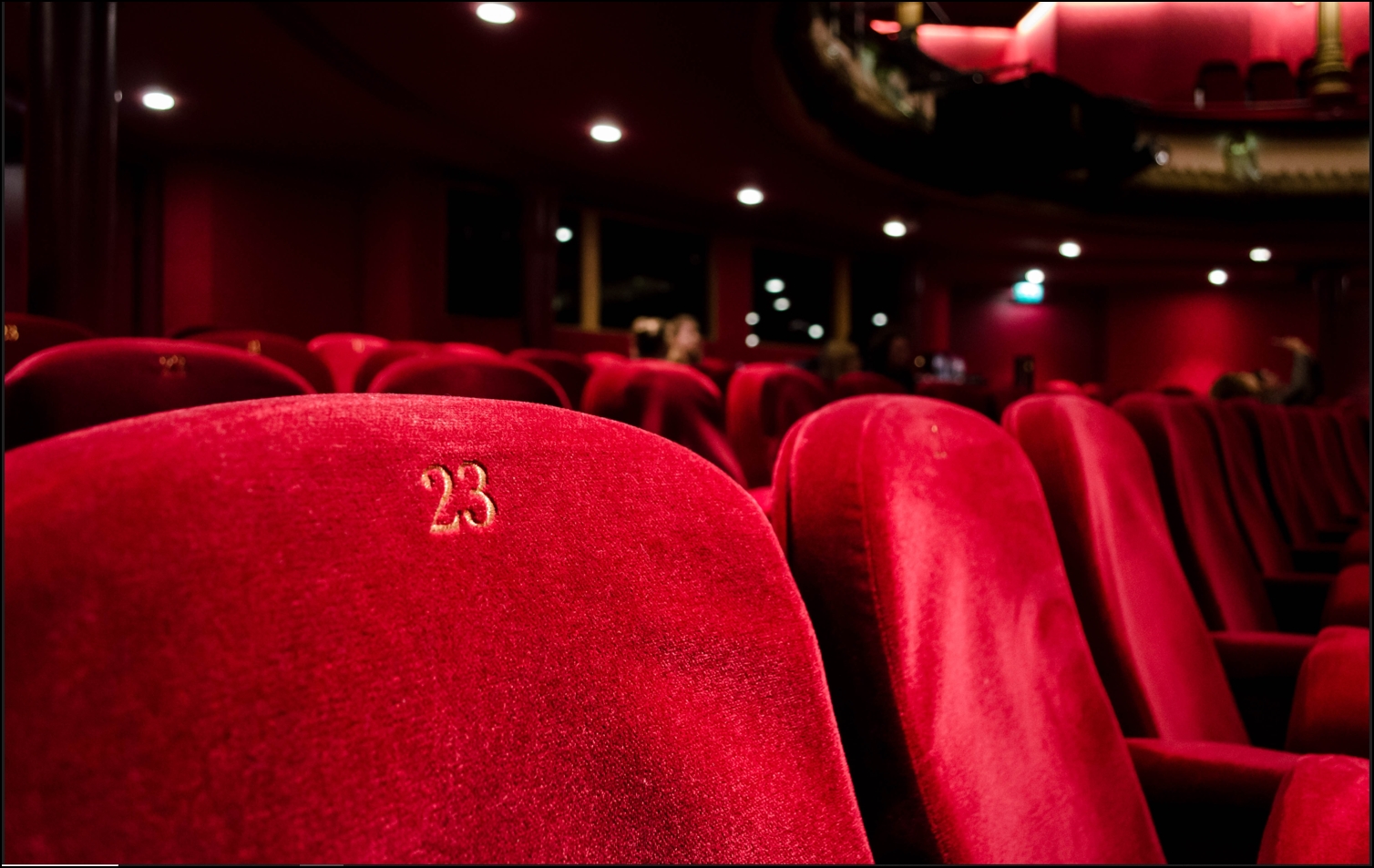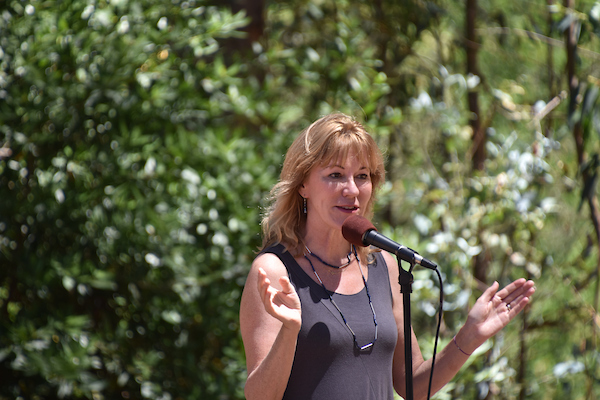Aisle Seat Review and our readers are enjoying a new series of question-and-answer interviews with prominent Bay Area theater people.
Our goal is not to subject you the reader to extended portentous sermons of the guest’s views on Russian translations of lesser-known Mamet flash drama (is there such a thing?)
Too often the people who guide and make theater in the Bay Area are behind the scenes — fast-moving denizens of the curtain lines who mumble into microphones while invariably (always excepting Carl Jordan’s beret collection…) dressed head-to-toe in black. These interviews allow you, the reader, to get to know these amazingly talented people a bit more, as…people.
Offering some personal and professional insights: with a heavy dash of humor, this is Aisle Seat Review’s Not So Random Question Time.
***
When describing the role of a dramaturg, Dr. Philippa Kelly says this: “Whatever can make a production deeper and richer and more ambiguous and interpretively challenging – that is the goal of my activities as a dramaturg.”
Since encountering Shakespeare at age fourteen, she’s become the first woman in history to prepare a public edition of King Lear and has published eleven books, including three on King Lear, one of the most recent being The King and I, which is a meditation on dispossession through the twin lenses of King Lear and Australian culture. In April 2020, with Amrita Ramanan as Associate Editor, Kelly published Diversity, Inclusion, and Representation in Contemporary Dramaturgy: Case Studies from the Field (Routledge).
She’s also educated students and audiences about Shakespeare in schools, prisons, and at the California Shakespeare Theater. As an Australian-American she has a unique perspective on how identity, social justice, and dramaturgy can be woven together throughout the creative process of theatre-making.

ASR: How did you get started in theater?
PK: I came to America as a Fulbright Scholar at UC Berkeley. Then I came back as a Rockefeller Scholar some years later. So I had trained to be, and was practicing as, a scholar/teacher.
Discovering dramaturgy made it all make sense – I would never go back to academe full-time. Dramaturgy makes knowledge live. Being Dramaturg for the California Shakespeare Theater has been the greatest professional joy of my life.
ASR: How many theater companies have you been involved with?
PK: Quite a lot: Cal Shakes, of course; and the Oregon Shakespeare Festival; the Play On festival; the Aurora; Word for Word; the Berkeley Repertory Theater; A UC production of Midsummer, and another UC production, totally student-led, in which the theme was “Glitter Macbeth” in honor of the director’s fascination with Mariah Carey. The student playing Macbeth was an athlete who had never acted before, and I taught him to walk like a soldier by putting sandbags on his feet.
ASR: Does your company have a special focus, i.e., genre/historical period, contemporary, experimental, emerging playwrights, etc?
PK: The California Shakespeare Theater of course has Shakespeare as its core, with Shakespeare’s incredible capacity to lay bare, and make us stare into the heart of human paradox. But under Jon Moscone’s vision, we began doing two Shakespeares and two other classics (Shaw, Wilde, Chekhov) per season; and under the leadership of Eric Ting, the company has moved more into New Classics – with the idea that while Shakespeare is a touchstone, the two (Shakespeare and the creation of New Works) can feed each other.
I’d say there is not a single artist I’ve met from whom I didn’t learn something, even if I didn’t see it at the time.
ASR: Who has had the largest impact on your professional development in the theater?
PK: The greatest influence in my professional life has really been Professor Stephen Greenblatt. Way before I became a dramaturg, it was his work that taught me to think dramaturgically – how we live, with all of our paradox, in this human world. Another great influence has been Curt Tofteland of Shakespeare Behind Bars - the way in which Curt brings the words of Shakespeare to reach places for which there has been so much hurt but may have been little language.
And one of my dearest inspirations is set designer Annie Smart. She has the eye of a designer and the mind of a dramaturg. When I prepare my actor packets (I write a fresh, 20-page actor packet for every show), I send them to Annie, and she grades the draft from A+ to B-!!! I’ve also been inspired by Eric Ting (we have already adapted four plays together into one – that takes some trust!) and Joel Sass, an amazingly original director, who is so thorough that there is almost nothing for me to do!
There are so many artists who have inspired me – actress/director Joy Carlin (her famous comment: “Don’t worry darling – it’s only theater”), playwright Marcus Gardley, director Ian Belknap, musician/performer/writer Rinde Eckert, writer/actress Ellen McLaughlan, dramaturg Lue Douthit (she says “Theater is a journey from emotion to emotion.”).
I’d say there is not a single artist I’ve met from whom I didn’t learn something, even if I didn’t see it at the time. And theater historian Liz Schafer – we have known and worked together on and off for 20 years. If you are looking for a fascinating book of interviews with women directing Shakespeare, look for her 1997 book, MsDirecting Shakespeare.
I think my dearest, deepest, most combative artistic relationship is with my husband Paul Dresher. He is a composer, presenter, and producer. Sometimes in response to his critiques I want to throw him down the toilet – but I know that when I cool down I’ll be so grateful for the light he shines into my work with his brilliant mind.
ASR: Have the coronavirus crisis and ongoing social upheaval affected your company and your work?
PK: The virus has decimated theaters everywhere. Cal Shakes has been doing a huge amount of work with Black Lives Matter and anti-racist activism. As for myself, every week I record a 12-minute video in a series we call “Run the Canon.” (https://calshakes.org/cal-shakes-online/run-the-canon/)
By the end of the year, we will have recorded videos for every play in Shakespeare’s canon. And this coming Tuesday (July 28th) I’m interviewing supreme Shakespeare scholar Stephen Greenblatt, author of Will in the World, The Swerve, and Tyrant. This will be followed by a ten-week course on five Shakespeare plays, which I’ll run every week. (https://calshakes.org/learn/shakespeare-in-depth-with-philippa-kelly/)
ASR: What are some of your favorite dramas? Musicals? Comedies?
PK: Whenever I sit down with a box of tissues to watch The Sound of Music, my husband Paul says, “Oh, OK. I’ll sit upstairs and start filling out the divorce papers.”
ASR: What is Shakespeare’s most under-rated play? Why?
PK: I think The Comedy of Errors. I was about to work on it with the wonderful director Jessica Holt for Cal Shakes this season when Covid struck. It’s under-rated because people often see it as just a light comedy, but it is also a deep meditation on the mysteries of identity. Who are we? There’s so little time to find out. When we look at, or listen to, another person, we very often see what is inside our own heads rather than what is there in front of us. Look at how people saw Hilary Clinton – or didn’t see her. And so we got stuck with the orange nightmare. Misrecognition, mis-seeing, misunderstanding—these are key to the lightness and darkness of The Comedy of Errors.
ASR: Shakespeare’s most over-performed play?
PK: Midsummer – I’ve dramaturged it four times.
ASR: Who do you think is the most amazing Bay Area actor?
PK: Honestly there are so many. I revere them. But if I had to name one who did something I’ve never seen before, it would be Patty Gallagher. We had had Marcia Mason cast as Winnie in our 2009 production of Beckett’s Happy Days. Marcia left after ten days, Patty came in, and she played the most beautiful Winnie I could ever imagine. She had only ten days to prepare, and that role comprises almost the whole play, and it is full of non-sequiturs. Still today when I think of Patty’s Winnie, tears come to my eyes. I love that play so much. Her performance was pitch-perfect.
ASR: If someone asked to be your apprentice and learn all that you know, what three things would you tell them are essential?
PK: Hmm. Quite a question…
1: Ask “Why are we performing this play, at this time, for this audience, in this place?” You need to feel the pulse of the present moment and be incredibly specific in that feeling.
2: Be prepared to draw from a deep well of knowledge, but do not expect to share, or volunteer, the whole of that well unless you want the director to hit you over the head with a chair. [Editor’s Note: Oh, sooo very true! — KN]
3: Don’t feel that you have to know everything – you can look it up. It’s the thirst for knowledge that makes a great dramaturg.
ASR: What is the funniest screw-up you’ve seen onstage in a live performance?
PK: I saw a Romeo and Juliet at OSF where Romeo sent the knife flying and poor Juliet had to stab herself without it.
ASR: Do you have a “day job?”
PK: I am a writer and an educator. I run a community Shakespeare group; I run a theater appreciation group (you can contact me about either class –they run in separate terms all year long – on philippakellydresher@gmail.com); and I am proud to be Chair and Professor of English at the California Jazz Conservatory under the directorship of Susan Muscarella.
ASR: What are your interests outside of theater?
PK: I love to swim, read, walk my chihuahuas, and to sit in the Australian morning sun with my family or friends, drinking “flat whites.”
ASR: Do you follow other arts—music, film, dance, painting/sculpture? Do you actively do any other arts apart from theater?
PK: I follow music, of course – The Paul Dresher Ensemble! John Adams.
I love photographer Richard Misrach’s work.
ASR: What would be the worst “buy one get one free” sale of all time?
PK: A colonoscopy prep kit.
ASR: What would be the coolest animal to scale up to the size of a horse?
PK: An amoeba.
ASR: Theater people often pride themselves on “taking risks”—have you any interest in true risk taking, such as rock climbing, shark diving, bungee jumping, skydiving?
PK: My beloved brother died rock climbing, so I’m not too much into risky sports. But I do love looking at the works of friends of mine who are photographers (Richard Misrach, Debbie O’Grady), painters (Naomie Kremer), authors (Richard Zimler), musicians (Paul Dresher, John Adams) and being awed in the presence of this fact: that when artists make their work, the act is as risk-taking as that of any explorer who has forged ahead even though they might fall off the edge of the world.
ASR: Favorite quote from a movie or stage play?
PK: “Love means never having to say you’re sorry” – NOT!!! Love means being ABLE to say you’re sorry!
-30-
 ASR Executive Editor Barry Willis is a member of the American Theatre Critics Association and president of the SF Bay Area Theatre Critics Circle. Contact: barry.m.willis@gmail.com.
ASR Executive Editor Barry Willis is a member of the American Theatre Critics Association and president of the SF Bay Area Theatre Critics Circle. Contact: barry.m.willis@gmail.com.

